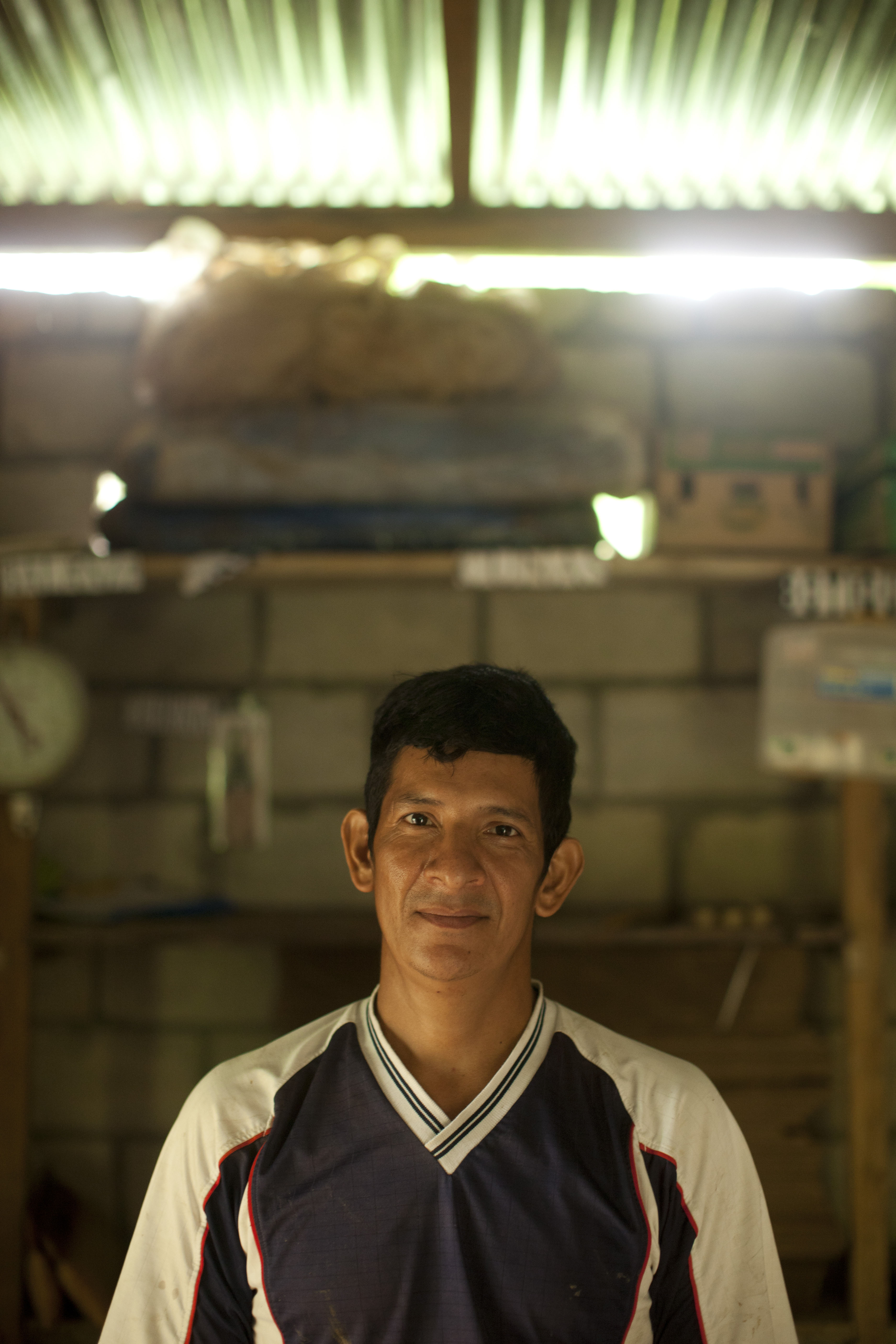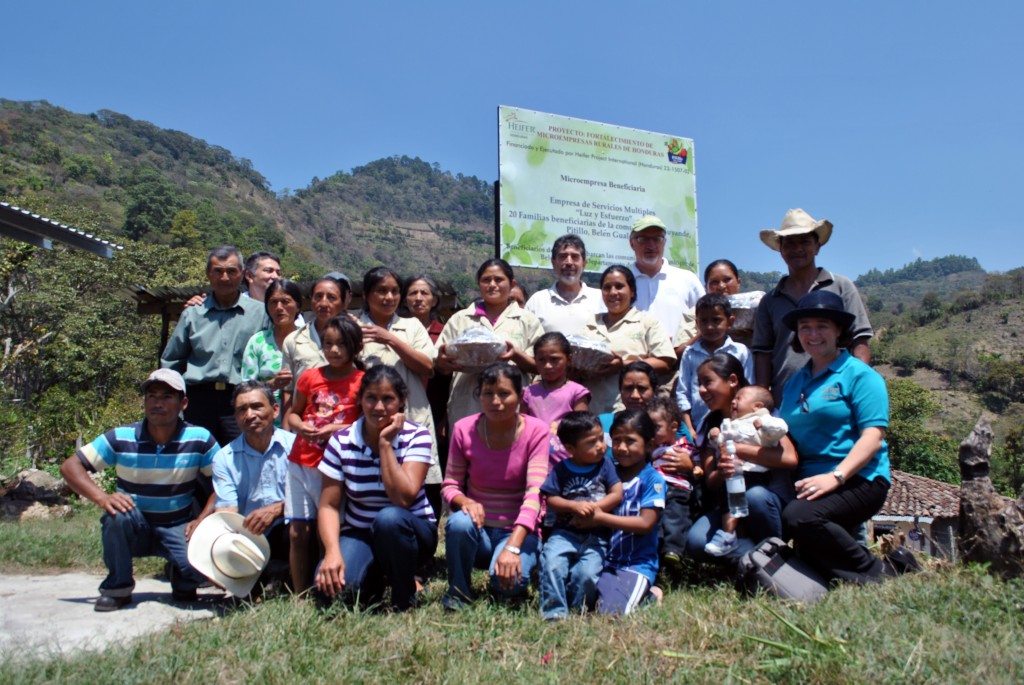October is the beginning of the coffee-harvesting season in several of our project countries, including Honduras, Guatemala and Mexico. It is also fair trade month, a time to celebrate and encourage the benefits farmers receive through participation in fair trade programs.
Two years ago I had the opportunity to visit a fair trade farm for the first time. Colleagues and I slogged up muddy terrain so we could see firsthand what it looks like to be a fair trade banana farmer and how Heifer International’s work helps take the benefits of fair trade membership a step farther to improve the lives of the people who grow the food many of us take for granted.

Wilson Sanchez grows bananas on a steep mountain in tropical, rural Ecuador. Sanchez is a member of the Association of Small Banana Producers of El Guabo, one of the founders of the fair trade banana movement. This farm was a great example of how families and communities benefit from belonging to a fair trade association, but also how Heifer’s work provides a valuable component for building sustainable livelihoods.
Through El Guabo and fair trade, Sanchez and his fellow banana farmers receive a stable, premium price for their bananas. They have reliable health care at local clinics, health insurance and checkups for the elderly, and local schools for their children. Because many grow bananas without chemicals, El Guabo helps farmers with the organic certification process. On land as steep as Sanchez’s, though, supporting a family off of banana crop yields is impossible, even with the fair trade premium.
While some may believe forcing the land to yield more bananas is the obvious answer, our work at Heifer International proves different. Through Heifer Ecuador, farmers have installed irrigation systems, diversified crops and learned how to market them, begun raising livestock such as hogs, and planted family vegetable gardens. We do similar work with farmers growing other commodity crops as well.

In Guatemala, Honduras, Mexico, Nicaragua and Peru, we have worked for several years with Green Mountain Coffee Roasters to bridge the gaps between the benefits of fair trade programs and the realities of seasonal hunger and poverty. In March I visited Heifer projects in Honduras and Guatemala. In the small community of Belen-Ocotepeque in Santa Rosa-Belen, Honduras, I met a group of 10 women entrepreneurs who, two years ago, started a small business selling pickled vegetables. Their families’ primary income comes from coffee laboring during the October-January harvest season. With support from Heifer Honduras, the co-op applied to put their line of pickled products into supermarkets countrywide, which could mean a significant increase in the amount and stability of their income.
This month, as we celebrate and promote fair trade, I’d like us to look for ways to take it to the next level—to ensure the farmers growing many of the things we enjoy have the happy, healthy and secure lives we all deserve.
